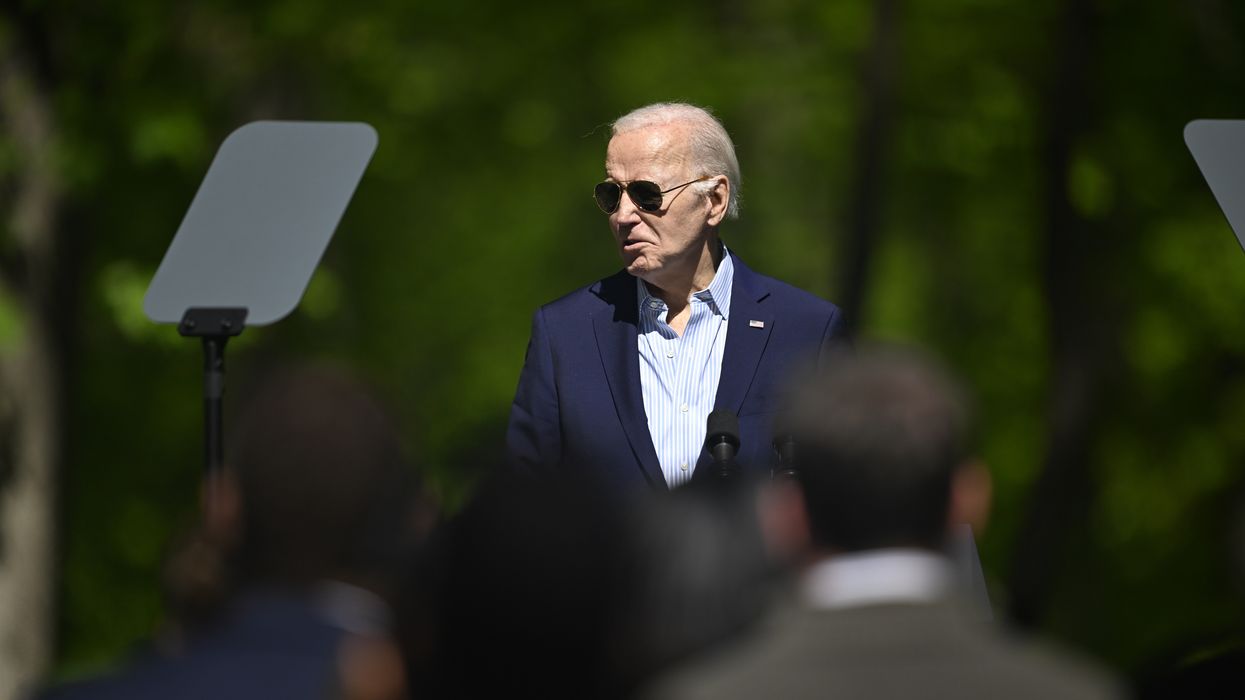Cupp is the host of "S.E. Cupp Unfiltered" on CNN.
Denial is a river in Egypt, as the saying goes. Well, it’s also making itself quite at home at 1600 Pennsylvania Ave.
President Biden is trailing former President Donald Trump in five swing states, all of which Biden won in 2020, according to a new set of polls.
While these polls are but a snapshot, they aren’t the only ones indicating Biden is struggling. They’re just the latest ones.
There was the Bloomberg News/Morning Consult poll in April showing Biden trailing Trump in six of seven swing states.
And an Emerson College Polling/The Hill poll in April showing Trump was ahead in all seven swing states.
And a Harvard CAPS/Harris poll in April showing Trump ahead nationally by four points.
Naturally, this should be worrisome to Biden.
And yet…
“While the press doesn’t write about it, the momentum is clearly in our favor,” he told donors during a West Coast trip last week, “with the polls moving towards us and away from Trump.”
Seemingly undercutting that argument, and again slamming the media, he also told CNN’s Erin Burnett last week, “The polling data has been wrong all along. How many of you guys do a poll at CNN? How many folks do you have to call to get one response?”
As CNN’s data guru Harry Enten pointed out, “[Biden] loved the polls four years ago, when they showed him ahead. These are the same polls now.”
Blaming the media for underreporting his achievements, trashing the polls as wrong when they’re bad for him and lauding them when they’re good, and refusing to accept where he is in the race doesn’t bode well.
It may feel counterintuitive that Trump could be ahead. As Colin Jost of “Saturday Night Live” put it at the White House Correspondents’ Dinner last month, “The Republican candidate for president owes half a billion in fines for bank fraud and is currently spending his days farting himself awake during a porn star hush money trial, and the race is tied? The race is tied! Nothing makes sense anymore.”
I agree that in a just world, Trump would be in prison and not on the ballot again. But all of this does actually make sense if you leave the Acela-corridor bubble and realize most voters don’t care about Trump’s trials. They care about themselves.
Unemployment, grocery prices, gas prices, home affordability, crime, the migrant crisis — all of this is directly impacting voters. However unseemly, Trump’s salacious rendez-vous with Stormy Daniels is not.
Biden doesn’t seem to realize that voters aren’t looking for more politics — they want better policies.
And his friends on the left — and, ironically, in the media — are trying to impress this upon him.
“As someone worried about the prospects of a second Trump term, I think it’s best to be honest about reality,” said CNN’s Fareed Zakaria. “He needs to do something bold and dramatic to seize the initiative on asylum policy, for example, and reverse these numbers.”
Former Clinton adviser Mark Penn wrote in the New York Times that Biden “appears all too focused on firming up his political base on the left with his new shift on Israel…and is failing to connect on the basic issues of inflation, immigration and energy.”
“Unfortunately,” he warns, “Mr. Biden is not reaching out to moderate voters with policy ideas or a strong campaign message.”
Another former Clinton adviser, James Carville also called for better policy arguments that embrace reality. “We’re not going to convince under-30, under-35 [voters], ‘Oh, we really built a great country for you.’ You’re looking at this job market…I don’t think you’re going to buy that. We need strong advocacy explaining to these youngsters what exactly they have at stake here,” and went on to name reproductive rights and environmental protections.
Swinging to the far left on Israel to appease pro-Palestinian young voters — who themselves only rank the issue 15th out of 16 in terms of top priorities — makes little sense. “Finding a solution to the conflict between Israelis and Palestinians” also only ranked 14th in a Pew poll of top foreign policy priorities among all Americans. It may be an issue around which there’s a lot of passion, but it’s not a kitchen table issue driving most voters.
Likewise, simply hoping the seediness of the Trump trials will turn voters off isn’t effective either. Hope isn’t a strategy, and it’s no match for fear.
Americans are afraid, and those fears should be met with real policy solutions that honestly address crime, the economy, immigration and other top concerns.
The polls may not be a prediction, but they should be a prescription. And if Biden wants to turn these numbers around, he first needs to stop denying them.
2024 S.E. Cupp. Distributed by Tribune Content Agency, LLC.




















